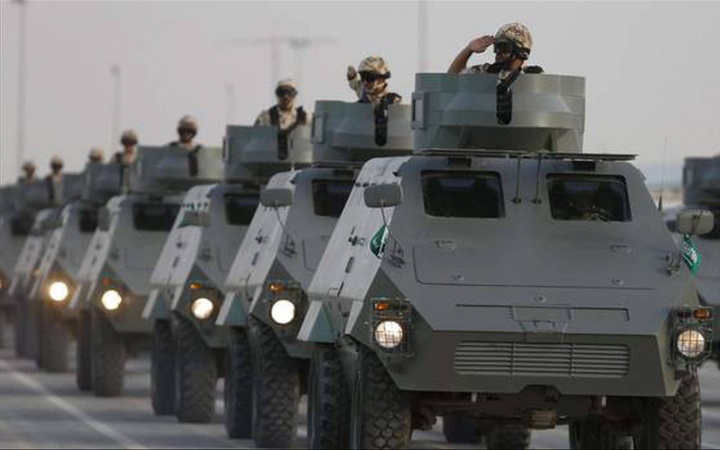On 19 May, President Donald Trump is scheduled to arrive in Saudi Arabia for his first overseas trip as president. During his trip, he will also visit Israel, the Vatican, and take part in a NATO meeting in Brussels and the G7 meeting in Sicily. His trip comes amid news that the US government will sell the Saudi around $100 billion worth of weapons even as the Saudis are deeply engaged in the war in Yemen and security forces are conducting a large scale military-like operation against Shia militants in the Eastern Province city of Awamiyah.
Even as President Trump visits Saudi Arabia, the kingdom is engaging in numerous human rights abuses. Saudi Arabia is a prominent party in the conflict in Yemen and the potential upcoming assault on the port city of Hodeida. As the leader of a coalition of Arab states backing Abdu Rabbu Mansour Hadi, Saudi’s jets have conducted hundreds of airstrikes around Yemen. The airstrikes have struck residential areas and killed several thousand civilians. The Saudi-led coalition has also conducted an aerial and naval blockade on Yemen that has contributed to the current food and medicine shortage plaguing the country. If the coalition ultimately decides to assault on Hodeida, the food shortage, which is already raising alarms of a humanitarian crisis, will grow worse, as Hodeida is the main entry point for food.
In addition, Saudi security forces are currently conducting a military-like assault on the Shia town of Awamiyah in the Eastern Province. In the morning of 10 May, security forces advanced into Awamiyah with the apparent intent of demolishing the historic Mosawara neighborhood. However, the situation escalated into violence and officials have cordoned off Awamiyah, putting the town’s 30,000 residents at risk of violence. At least two civilians have already been killed, including a two-year-old child. The government claims it is pursuing “terrorists” and that it must destroy Mosawara to eliminate this threat, though Saudi Arabia’s definition of terrorism also encompasses activists and dissidents.
Activists in Awamiyah have posted pictures and video recordings of bulldozers on streets, cars on fire, and walls covered in bullet holes, and have stated that security forces were preventing medics from reaching the area. While security forces have conducted military raids in Awamiyah in the past, including the raid to capture Sheikh Nimr al-Nimr, in which he was shot in the leg, and in 2011, activists have said that this ongoing operation is much worse than previous raids. Part of the difference is the length of the raid, which began on 10 May, but which has not ended. Another part is the attempted destruction of Mosawara, which would alter the physical and cultural geography of the town and which several UN Rapporteurs have argued against.
Despite these severe and ongoing abuses, President Trump is not only scheduled to visit Saudi Arabia, but to announce an arms sale to the kingdom and its allies that could total between $98 billion to $128 billion. The sale could add up to $350 billion over ten years. This show of support to Saudi Arabia may amount to complicity in its human rights violations, as the US refuses to denounce them or pressure the kingdom to halt its actions.
The combination of Trump’s visit and the announcement of the arms sale at this time, when Saudi Arabia is engaged in egregious human rights violations, sends a strong message to the US’s allies about the importance of human rights to US foreign policy. It also affirms Secretary of State Rex Tillerson’s comments about de-coupling and de-emphasizing human rights concerns in foreign policy. While it is too much to hope that Trump will have a change of heart, this is the moment when the international community needs to come forward and reject Saudi Arabia’s policies. The international community must publicly and strongly condemn not only Saudi Arabia’s role in the war in Yemen, but also the military action in Awamiyah and the US’s potential complicity in these actions.





